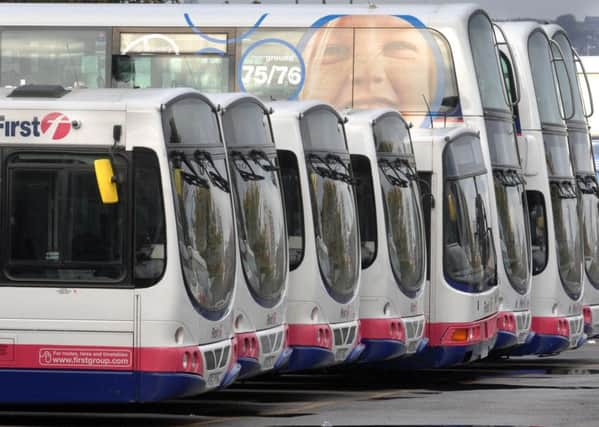Campaign launched to make getting on a Leeds bus easier than getting a taxi


The former leader of Leeds council, who is now chair of the West Yorkshire Combined Authority’s transport committee, is among senior figures who have thrown their renewed support behind new proposed franchising laws, which they say would give our region a London style service, with Oyster-type ‘all-in-one’ ticketing, cheaper and simpler fares, and a reversal of what they claim is decades of declining passenger numbers.
It is claimed that at the moment, the region’s bus network is beleaguered by rising prices, confusing and overly numerous ticketing options and unreliable services.
Advertisement
Hide AdAdvertisement
Hide AdThe Yorkshire Evening Post asked online readers for their thoughts, and was swamped with responses like “it’s cheaper to travel to the city centre by taxi” and “ticket prices are too high and buses are always missed or late”. See the panel on the right for more responses.
The website of Metro – the public-facing brand of the region’s transport regulator – lists a staggering FORTY TWO different bus operators which are running services in Leeds and West Yorkshire.
One firm has FOUR options for a single journey ticket. For many people living in inner city suburbs, it’s cheaper to share a taxi into town than get a bus.
Coun Wakefield pointed out that in some parts of Leeds, “you only get one bus every hour” because “the Firsts and Arrivas are just not interested”.
Advertisement
Hide AdAdvertisement
Hide Ad“If you live in a non-commercial area, you are going to get a very infrequent service, something we have to subsidise.
“If you live in Headingley or Chapel Allerton, you will get a bus every five minutes. In Kirkstall you have 100 different tickets.
“The routes are designed not to get you into the city centre quickly, but to get as many people as possible on the bus.”
He said local Government currently cannot hold bus operators to account because the companies are able to choose their own rates and they prioritise maximising profit over everything else.
Advertisement
Hide AdAdvertisement
Hide AdBus services outside London were deregulated in 1986. In London, services are operated under contract by private companies but in the capital it is done through a competitive tendering process. In the rest of the country, anyone can operate bus services, and choose their own fares, routes and vehicles. Under bus franchising, the deregulated bus market would be suspended and bus operators would only be able to provide services under contract to the local transport authority.
Coun Wakefield said many people still believe – mistakenly – that bus services are run by the council.
“When it was deregulated, it was premised on the idea that this would bring in extra competition,” he said.
“That clearly has not worked in terms of the original aspirations.
Advertisement
Hide AdAdvertisement
Hide Ad“Most people say now in this city that we have a duopoly. I can’t find anyone in this city who doesn’t agree that this is a broken system.”
“We are onto a new opportunity,” he added of the proposed franchising model, which would be enshrined in the Government’s new Buses Bill.
Councillor Richard Lewis, Leeds City Council’s cabinet member for regeneration, transport and planning, said giving people incentives to get back ON the buses was vital to the city’s transport network.
“Buses are actually central to us solving our traffic problems within the city,” he said. “Huge amounts of time is expended on talking about rail services. But actually in most parts of the city, people are going to be dependent on bus transport.
“We have been bumping along at the bottom for far too long - we really need to make a change.”